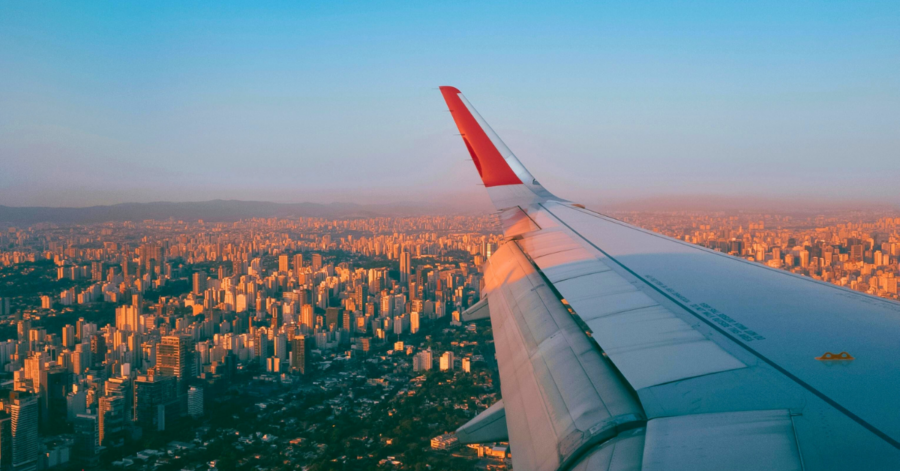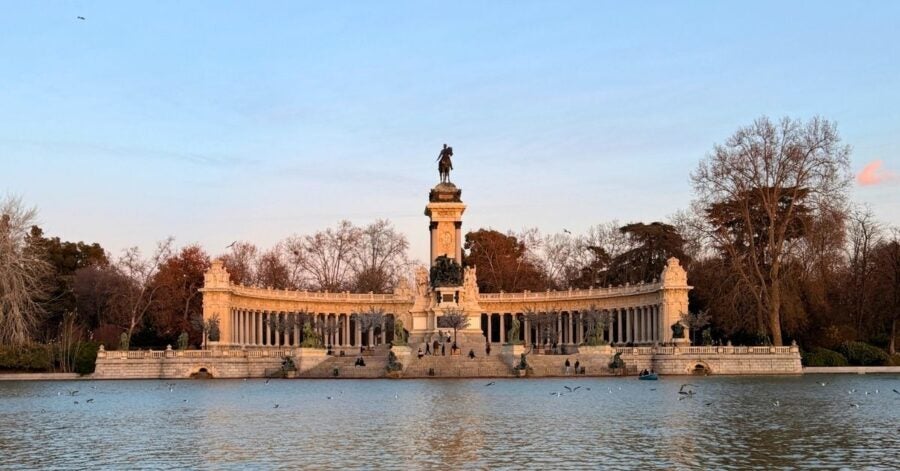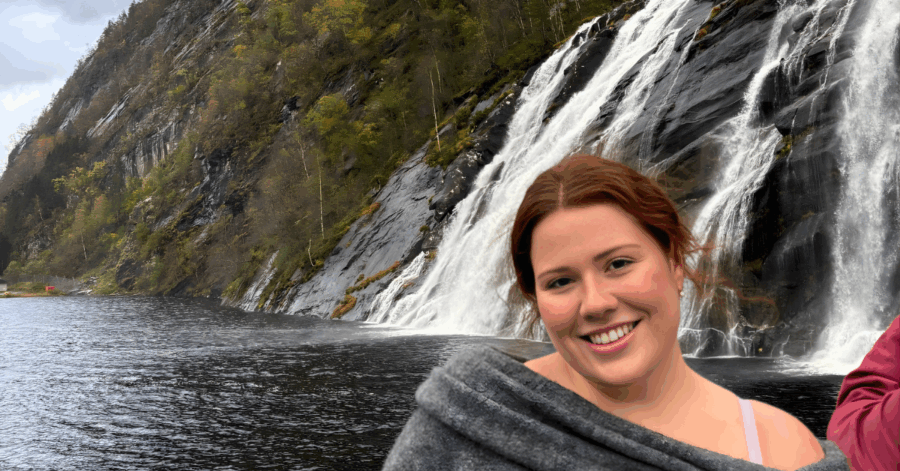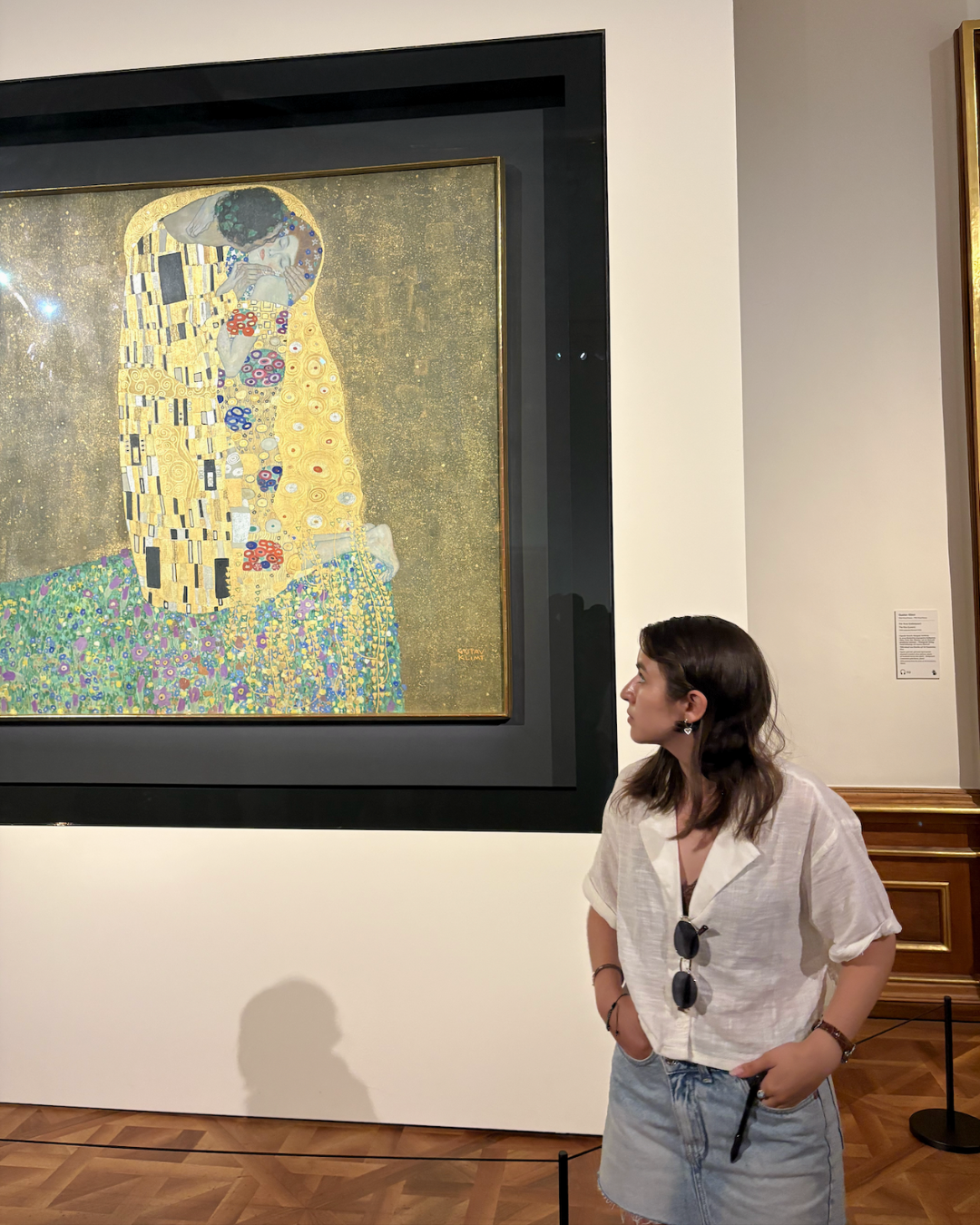
As my train sped away from Vienna for the last time, the city slowly fading into the background, I sat in front of my laptop, my fingers hovering over the keyboard, unsure how to begin capturing the past few weeks. My time in Vienna has reminded me that some experiences aren’t easily quantifiable through words. Still, in the spirit of reflection—and as a Texas Global Ambassador—I’ll do my best.
A City That Teaches
What made this program so memorable was the nature of our course itself. Focused on cultural memory, it pushed us to see Vienna not just as a city, but as a living, dynamic classroom. We explored museums, monuments, neighborhoods, music, and art, constantly examining the layers of history embedded in each space. More than anything, we were asked to consider not just what is remembered, but how and why.
Our professor encouraged us to think critically—to appreciate the beauty of a piece while also understanding the historical forces and personal biases that shaped its creation. That balance between admiration and critique defined our academic experience.
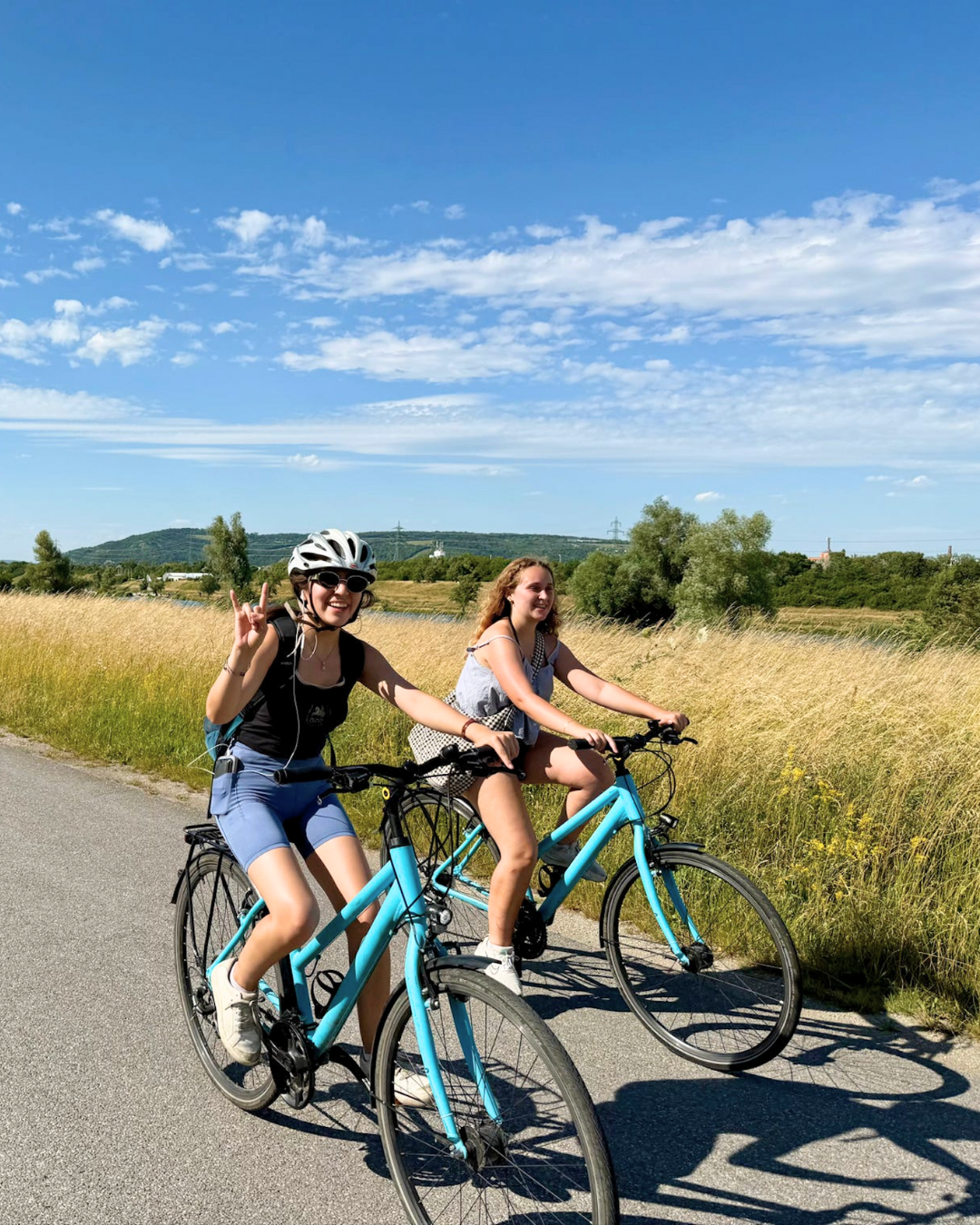
Moments of Joy and Complexity
Outside the classroom, Vienna offered its own powerful lessons. One of the most memorable days for me was attending Pride for the first time. It felt like the entire city—perhaps even the country—came together to celebrate. The energy was infectious, joyful, and deeply moving. One of the most surreal moments was when Eurovision winner JJ performed his winning song, “Wasted Love.” I had listened to that track countless times before arriving, but watching it performed live, in the middle of such a vibrant crowd, felt unreal—like a full-circle moment I never could have planned.
But not all of our experiences were celebratory. One of the most emotionally difficult—but necessary—parts of the course was our visit to Mauthausen, a former concentration camp. Standing on those grounds confronted us with the painful weight of history in a way no textbook ever could. It reminded me that cultural memory is also about remembering suffering and holding space for difficult truths.
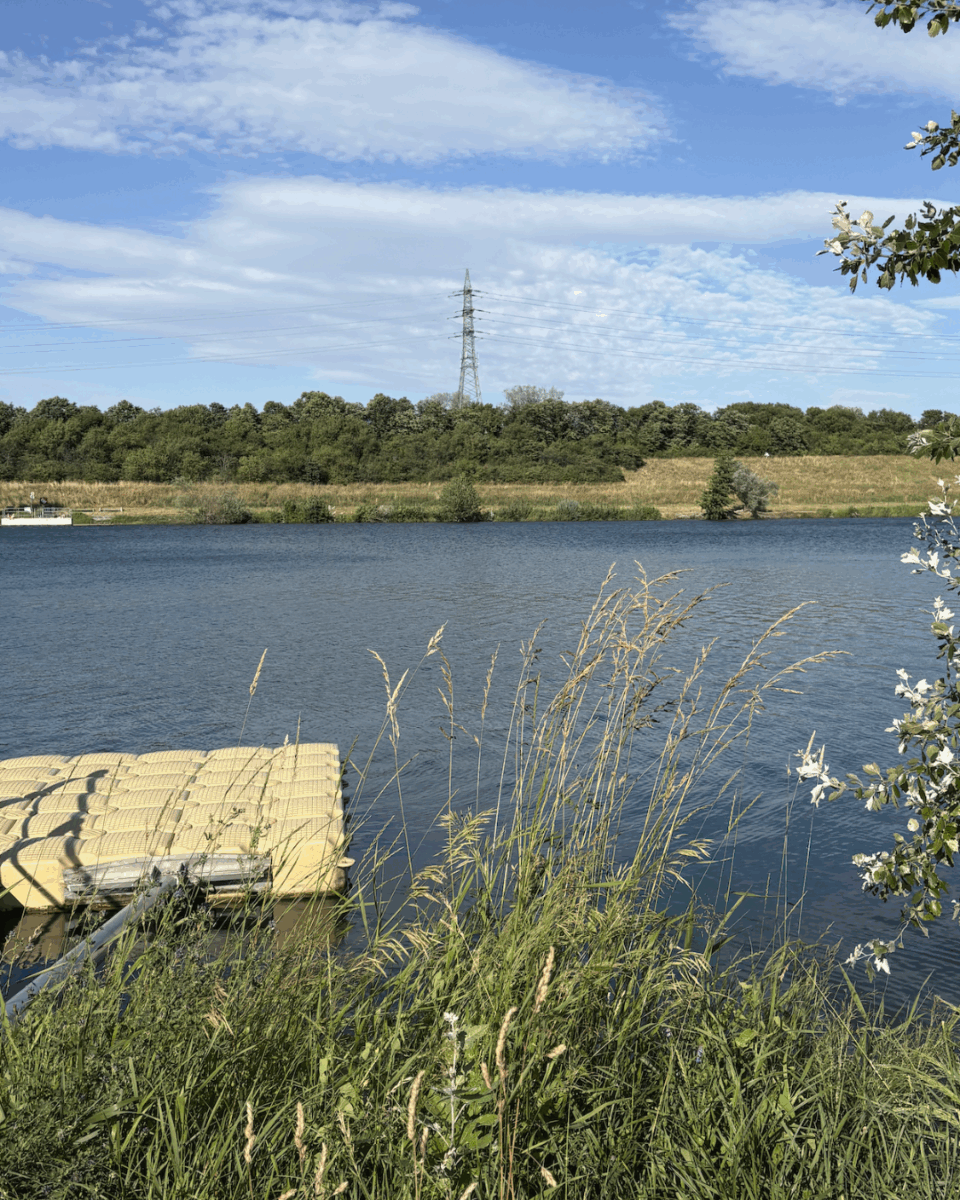
A Presentation Like No Other
One of the most distinctive academic components of the course was our final project. Staying true to the idea of the city as a classroom, we each led a guided presentation at a site that reflected some aspect of cultural memory. Topics ranged from monuments to Vienna’s public transportation system.
I’ve given many presentations throughout my academic career, but I was nervous about delivering one outside of a traditional classroom—in a different country, no less. For my project, I chose the Josephinum, a museum of medical history known for its 18th-century anatomical wax models. It allowed me to explore the fascinating intersection of science and art and to reflect on how the human body has been represented across time. Each presentation helped show that memory doesn’t only live in grand monuments, but also in the everyday spaces and overlooked artifacts that quietly tell stories of the past. I’ll always be grateful for this experience—it challenged me and expanded my understanding of what education can look like.
Memory in Motion
Some of the most meaningful moments came during quiet, everyday acts, like biking alongside the Danube. As we passed the flowing river, my classmates beside me, I felt unexpectedly transported, reminded of earlier versions of myself and childhood summers. These fleeting, reflective moments helped me internalize the course’s core themes.
Another highlight of the course was our daily journal. We were encouraged to reflect freely, whether through poems, stories, sketches, or observations. One of my entries compared Viennese cafés to the ones back home in Texas. Another was a short story written from the perspective of grapevines in a vineyard. This assignment helped me slow down and process everything we were experiencing, giving structure to emotions and impressions that might otherwise have passed me by.
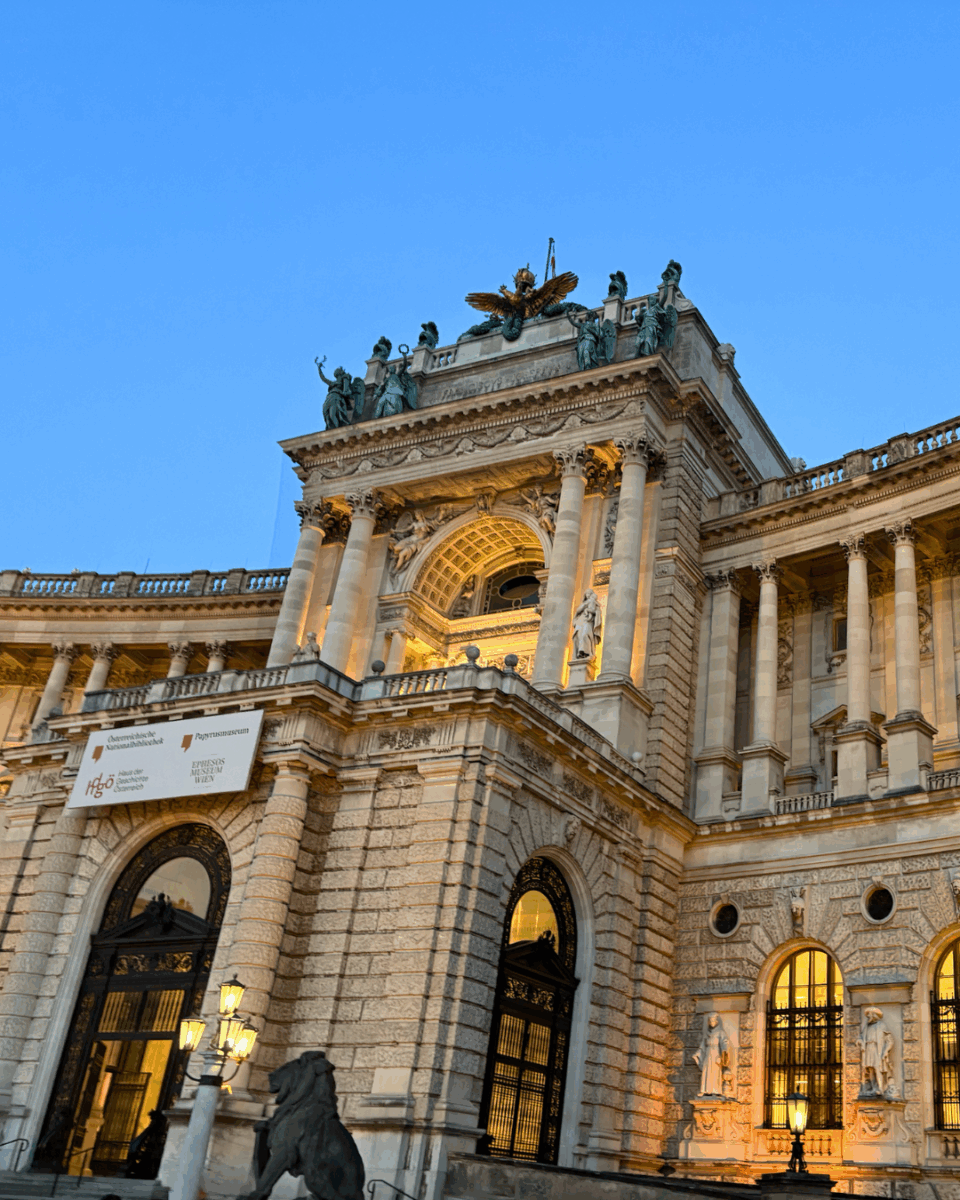

On our final day, our professor told us, “This is more than an assignment. This is a gift for your future self.” That moment has stayed with me. Even now, I find myself returning to those journal entries, thinking back to the readings and conversations that shaped our time together. I know that as the years pass, I’ll continue to revisit these memories with new eyes and even deeper appreciation.
This post was contributed by Angela Santos, a Global Ambassador for Summer 2025. Angela is a senior studying abroad in Vienna, Austria.


